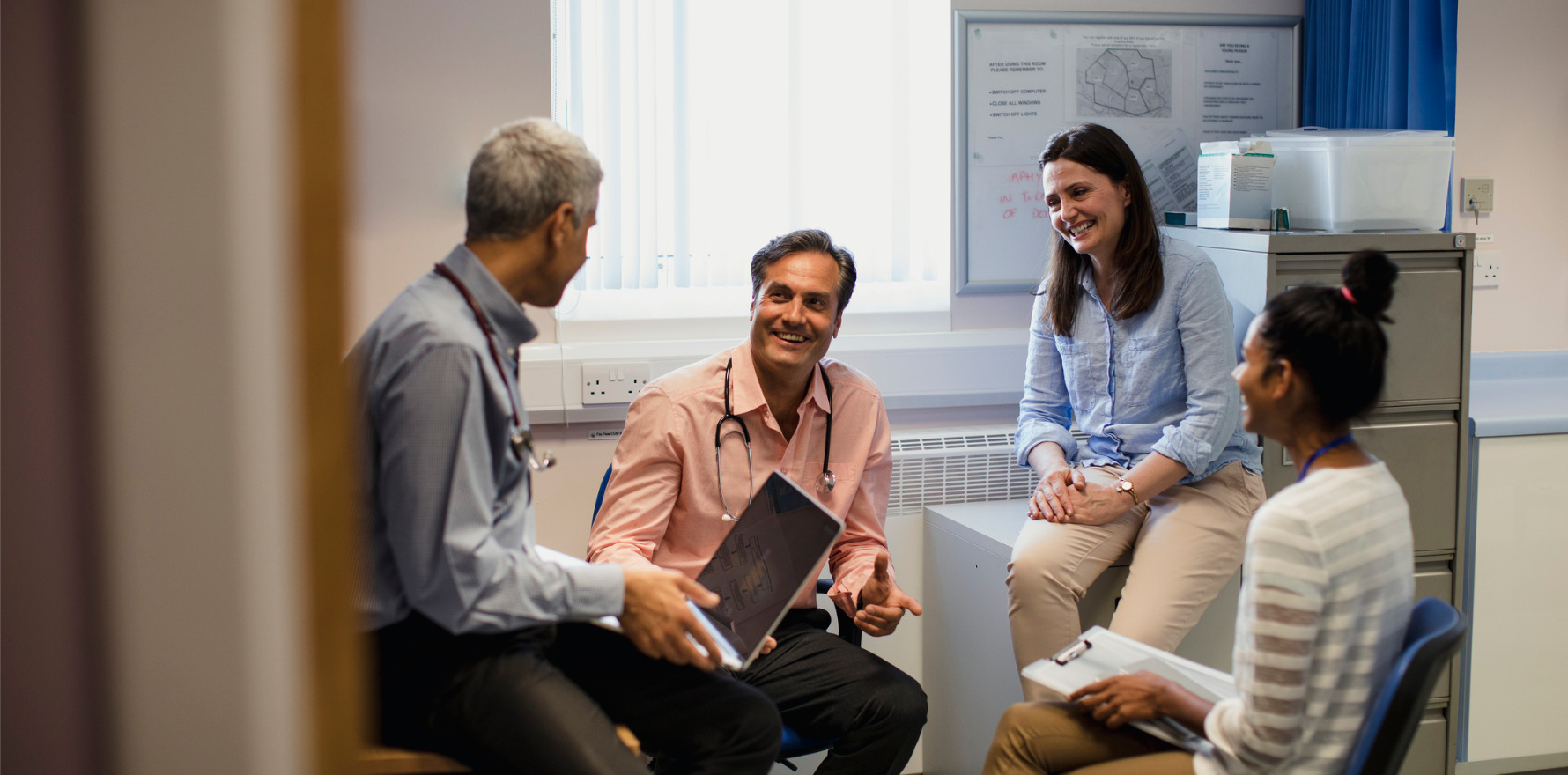Innovative educational visits are transforming how GPs learn.
Technology and covid have changed the way everyone engages with education and learning, and doctors are no exception.
Online learning opportunities such as webinars are commonplace and a convenient way to build knowledge and meet CPD obligations.
But a growing number are looking to supplement these opportunities with more tailored practice-based learning experiences that offer an opportunity to engage with experts and access the latest information about the use of specific medicines.
Educational visits are an innovative and modern variant of academic detailing. They offer small group interactions between trained educators and healthcare providers, and deliver tailored content, data and real-time discussions. They also include a suite of diagnostic, therapeutic and patient support tools.
Importantly, these visits are evidence-based, independent and free from pharmaceutical or industry influence, ensuring that GPs receive unbiased, high-quality education.
Leading the educational visiting initiative for the Quality Use of Medicines (QUM) Alliance is Amanda Fuller who has visited big and small practices across the country and been overwhelmed by the positive feedback.
Ms Fuller is an accredited clinical pharmacist and educator with more than 20 years’ experience, including as an educational visitor with NPS MedicineWise.
She says the tailored nature of the program is particularly welcomed and proved there is a need for such an initiative. GPs have embraced real time education and discussing issues that affect their individual practices.
For practices that want the experience but don’t have the option of a face-to-face session, a virtual version in the same format is also available. Ms Fuller says this has been a hit with rural and remote GPs and practices.
She says the program is not designed to replace other forms of learning such as webinars and podcasts.
“This is just another way of providing education, but it’s personalised rather than a one-size fits all approach,” she says.
“We can tailor the information, put that evidence into the context of their practice and patient cohort to meet their needs, and once we’ve met their needs, hopefully we’re going to improve patient outcomes.”
The format also allows for greater convenience, with sessions scheduled at times that work best for participants – whether during lunch breaks or less busy practice hours.
The interactive whole-of-practice learning experience has been specifically designed for Australian general practices, Aboriginal health services and aged care services, and is funded through the Department of Health and Aged Care, meaning it can be freely offered to practices.
It includes valuable resources such as decision aids and management algorithms to assist in decision-making. The visits are RACGP and ACRRM-accredited, allowing participants to earn one hour of CPD for reviewing their performance.
Each session involves an expert clinical facilitator who leads the discussions, case studies and Q&A sessions.
The program focuses on priority areas that represent a range of quality use of medicines challenges for millions of Australians. Topics are identified and education developed through an extensive formative research and design process.
Atopic dermatitis (eczema) and gout have been hot topics where the impact on patients and role of GPs are often underestimated.
Another module – antidepressants in older adults is helping GPs strengthen skills in initiating care, monitoring therapeutic progress and making informed maintenance or deprescribing decisions.
It’s a similar case for the fourth module on offer – oral anticoagulants (for stroke prevention in atrial fibrillation). This is an urgent and critical area, as we know that 40% to 50% of patients with AF who should be anticoagulated are not.
“This module helps GPs identify high risk patients with opportunistic AF screening and improves their confidence in assessing the risks and benefits of initiating treatment as well as encouraging adherence,” says Ms Fuller.
She says visits are about more than the evidence. They focus on translation and application of evidence and how to implement guidelines in a real world setting where GPs need to navigate multi-morbidity and resource scarceness.
“The other issue is confidence” she says.
“GPs walk away feeling better equipped to make improvements to their clinical practice. It’s fulfilling to know we are helping so many GPs and we get a lot of feedback from grateful GPs.”
New topics are in the pipeline, including antidepressants in teens and young adults, secondary stroke, menopause, osteoporosis, and complex multimorbidity. This will see the alliance work closely with the Black Dog Institute, Jean Hailes, Stroke Foundation and Healthy Bones Australia.
The educational visiting initiative goes hand-in-hand with another educational approach called Clinical Case Master which empowers healthcare practices to enhance clinical skills and improve patient care through peer-led learning.
Clinical Case Master offers a train-the-trainer variant of virtual educational visits, enabling practices to build internal capacity for ongoing professional development.
In this model a GP principal, GP supervisor, or a GP with a special interest receives facilitator guidance and resources to lead clinical case discussions within the practice. By using clinical cases, they engage with colleagues to analyse, discuss, and learn from a variety of clinical situations.
The Quality Use of Medicines Alliance is an influential consortium of organisations working in the health sector and led by independent health education provider Medcast and peak body, the Health Care Consumers’ Association.
Other members of the alliance include Arthritis Australia, Eczema Support Australia, the Royal Australian College of General Practitioners (RACGP), the Pharmaceutical Society of Australia (PSA), QUM Connect, and Wiser Healthcare, a university collaboration in this case involving Monash University.
The alliance is also supported by more than 20 affiliate organisations from across the health sector who are providing ongoing input and advice.
To book an educational visit or enrol in a Clinical Case Master visit
medcast.com.au/qhub


